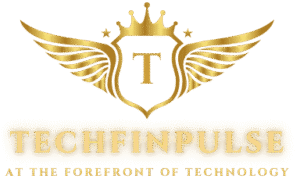The multimedia world is buzzing with excitement as FFmpeg 8.0 gears up for its big release in August 2025. If you’re into video editing, coding, or just love tech, this update is a game-changer. FFmpeg, the go-to tool for handling audio and video, powers everything from VLC to YouTube. So, what’s coming in FFmpeg 8.0, and why should you be pumped? Let’s dive in and explore the magic of this open-source gem!
FFmpeg has been a trusted name in multimedia since 2000, offering tools to encode, decode, and stream media like no other. This upcoming release is set to raise the bar. According to FFmpeg developer Michael Niedermayer, the code branching is happening soon, with the official launch expected by late August. The community is thrilled, and for good reason—FFmpeg 8.0 is packed with features that’ll make your workflow smoother and faster.
What Makes FFmpeg 8.0 So Special?
This isn’t just another update—it’s a leap forward for multimedia enthusiasts. FFmpeg 8.0 brings new decoders for modern and legacy formats, ensuring you can handle any media type with ease. Think RealVideo 6.0 for retro vibes, ADPCM IMA Xbox for gaming audio, or G.728 for crystal-clear voice compression. There’s even support for Sanyo LD-ADPCM and Samsung’s Advanced Professional Video (APV) for niche and pro use cases.
Encoding gets a major boost too. FFmpeg 8.0 supports APV encoding for high-end video production and animated JPEG-XL for compact, high-quality animations. If you’re into HEVC, the libx265 alpha layer encoding adds transparency support for advanced workflows. These tools are perfect for creators who demand precision and efficiency, whether you’re streaming or archiving.
Hardware acceleration is another highlight. FFmpeg 8.0 introduces OpenHarmony encode and decode support, opening doors to new ecosystems. The Video Acceleration API (VA-API) now supports VVC/H.266, a next-gen codec that delivers top-tier compression and quality. This means faster processing and better visuals, especially for professional setups.
Performance is where FFmpeg 8.0 truly shines. Recent X posts rave about AVX-512 optimizations, offering up to 36x faster performance compared to plain C code. Whether you’re encoding massive video files or streaming in real-time, this speed boost is a dream come true.
Why You’ll Love FFmpeg 8.0
FFmpeg 8.0 is built for everyone—developers, content creators, or sysadmins running media servers. Its open-source nature, licensed under LGPL-2.1-or-later or GPL-2.0-or-later, makes it free and accessible. The active Git community ensures you’re always getting the latest innovations. If you’re on older systems like Rocky Linux 9, where FFmpeg is stuck at 5.1.6, you might need to compile from source. Don’t sweat it—the Git master builds are your ticket to the full 8.0 experience.
This release is all about versatility. Whether you’re tweaking videos for fun, building apps, or managing high-volume streams, FFmpeg 8.0 has your back. The community’s passion keeps it evolving, making it a tool you can rely on for years to come.
Get Ready for FFmpeg 8.0
With the release just around the corner, it’s time to prep. Start by keeping an eye on ffmpeg.org for official updates and downloads. Want the latest features? Compile from the GitHub repository for cutting-edge builds. Test the new decoders and encoders in a safe environment to ensure they fit your projects. And don’t forget to join the FFmpeg-devel mailing list to connect with the community and share feedback.
FAQs About FFmpeg 8.0
When is FFmpeg 8.0 dropping?
The release is slated for late August 2025, with code branching happening in the next couple of weeks.
What do I need to run FFmpeg 8.0?
Full builds require CPUs with SSE4.1 or newer and won’t support Windows 7/8. A modern 64-bit system is ideal for the best performance.
Can I use FFmpeg 8.0 on Rocky Linux 9?
You’ll likely need to compile from source, as Rocky Linux 9’s repositories are stuck at version 5.1.6. Check the GitHub for build guides.
Is FFmpeg 8.0 free?
Absolutely! It’s open-source under LGPL-2.1-or-later or GPL-2.0-or-later, depending on your configuration.
Wrap-Up: FFmpeg 8.0 is a Multimedia Game-Changer
FFmpeg 8.0 is poised to redefine how we handle multimedia, with new codecs, blazing-fast performance, and broader hardware support. Whether you’re a pro or a hobbyist, this release has something to make your work easier and more exciting. Stay tuned for the launch, and let us know in the comments how you’ll use FFmpeg 8.0! Ready to dive in? We can’t wait either!
Disclaimer: Details in this article are based on current reports and may change. Verify with official FFmpeg sources before making technical decisions.
Related Links:







